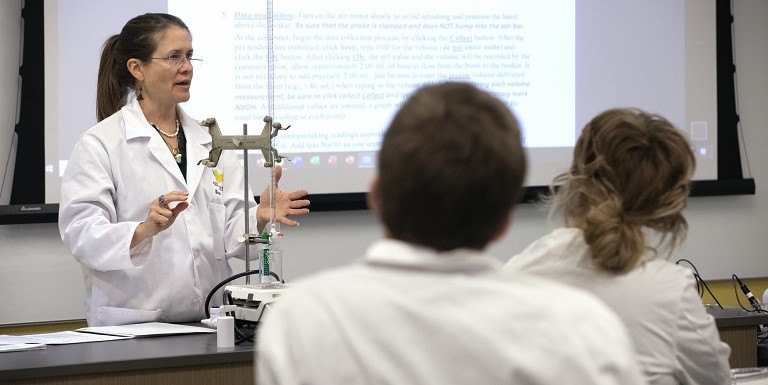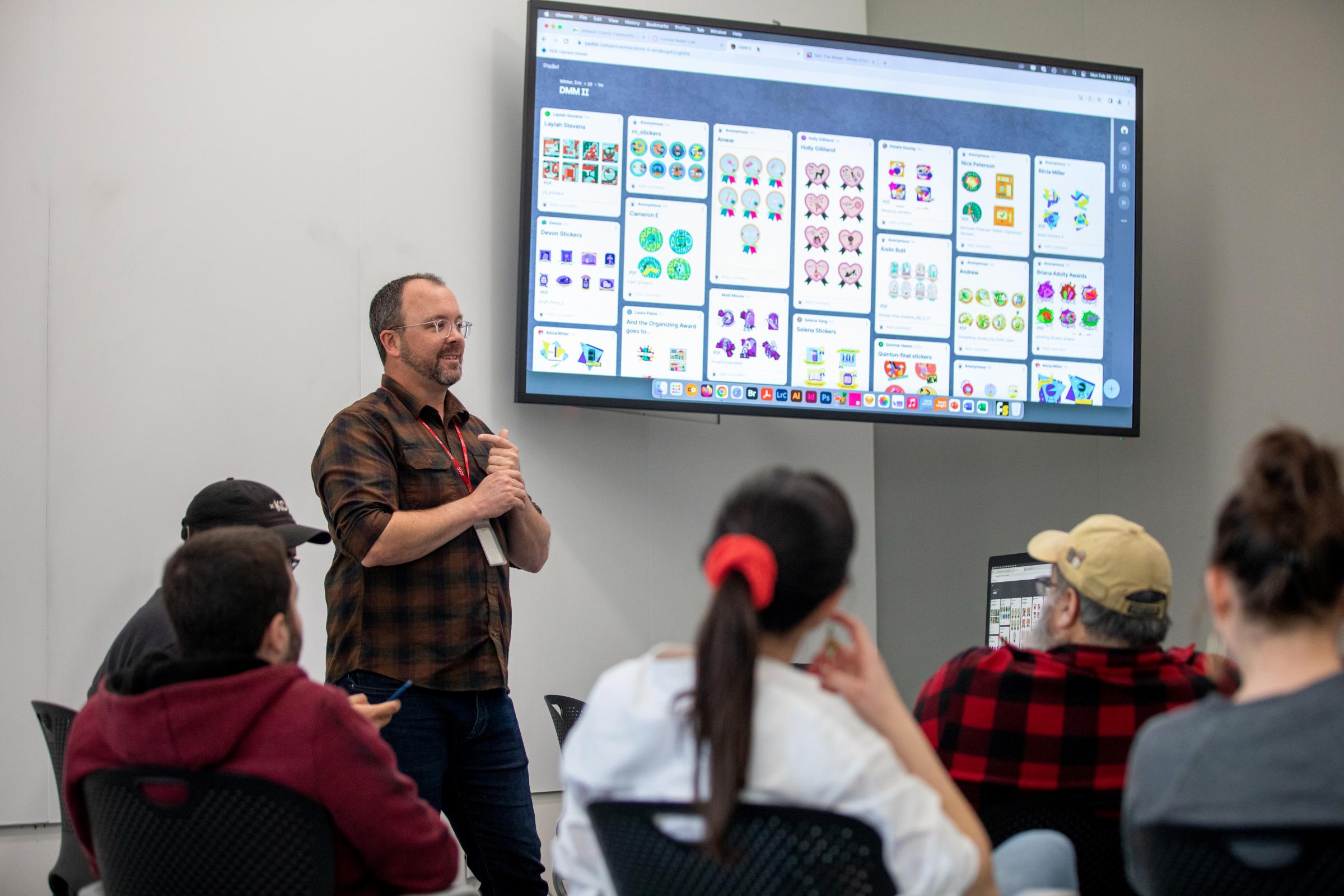Johnson County Community College: Supporting Faculty to Meet Learner Needs

With a focus on accessibility, diversity, and job-relevant education, community colleges are well-positioned to address the evolving needs of students and the workforce. Within the broader field of higher education, community colleges can serve as laboratories for experimentation in pedagogy and curriculum while providing affordable and high-quality education (Hadzi-Antich, 2023).
Recognizing the crucial role of quality and innovative teaching, Johnson County Community College (JCCC) used its strategic plan to leverage student learning to the forefront of institutional initiatives. Goal 1, Step 1 of the college’s strategic plan directed the college to “provide training and resources to research and implement teaching strategies that are effective, innovative, and evidence-based, as the college and teaching faculty work together to meet the diverse needs of students as learners” (Johnson County Community College, 2021, p. 1). In service of this mandate, faculty and staff were charged with developing a Center for Teaching and Learning (CTL) dedicated to assisting faculty with research, discovery, and implementation of effective pedagogical methodology, educational technology, and Universal Design for Learning principles.
The dissolution of JCCC’s previous CTL some years ago could be attributed to an unsustainable model that failed to adapt to current research and evolving faculty needs. As often happens, initial enthusiasm waned over time and the offerings and staff became less relevant and innovative. Hence, the need to establish a model for a dynamic, sustainable CTL was fundamental.
Building a Strong Foundation
Beginning in fall 2022, four faculty members, named as CTL Faculty Fellows, received release time to collaborate with the Office of Faculty Development in designing and implementing the new CTL. CTL staff began by researching the literature on best practices and evidence-based strategies. They also identified successful CTLs at other colleges and met with their staff to learn about the programs. They worked with the Office of Institutional Assessment, Evaluation and Institutional Outcomes to create, administer, and analyze the results of a CTL survey sent to all faculty members. Finally, the four Fellows attended an evidence-based teaching and learning conference, which was an opportunity not just for inspiration and learning, but to foster a sense of community and connection within the group.
The Faculty Fellows used this information to develop a mission statement: “The Center for Teaching and Learning at JCCC supports faculty-driven collaboration, growth, innovation, and scholarship to increase student success in the classroom and beyond” (Johnson County Community College, 2022, para. 1) To make the center feel inclusive to faculty members across disciplines and to enhance opportunities for interdepartmental collaboration, Fellows were selected based not just on pedagogical expertise, but equally on diversity of discipline. The initial Fellows represented the Drafting, Dental Hygiene, English, and College Success departments. Of the four Fellows, two had two-year terms and two had one-year terms. Moving forward, incoming Faculty Fellows will serve a full term so that each year there will be two experienced and two new Faculty Fellows. These rolling terms of service allow for both continuity and innovation—the work of the previous year is maintained while allowing for fresh perspectives from the newer Fellows.

Professor Eric Winter teaches graphic design students in an active learning classroom.
Implementation
During the first semester, the Faculty Fellows met with the Director of Faculty Development weekly to work on a long-term plan to foster an ongoing and rich culture of learning among faculty. Inspired by their research, they set out to develop a series of teaching tracks to address the diverse needs of instructors. These tracks are offered in a hybrid format; focused on modeling best practices for both online and face-to-face teaching; and designed for varying levels of teaching experience and expertise, including a beginner, an intermediate, and an advanced track. Faculty members self-select which track will be of greatest value for their specific needs, and the tracks span over the course of a semester or a year, allowing instructors to have the time to absorb and implement what they learn about teaching and learning. The sessions are offered using a cohort model to allow for collaboration and interdisciplinary connections with colleagues.
To begin this rather formidable undertaking, the Faculty Fellows teamed up with the Office of Faculty Development to establish a pilot program for new faculty, with the intention of scaling up and offering it to all faculty. Previously, New Faculty Orientation (NFO) had been delivered in a traditional sit-and-get format, where representatives from various offices and committees presented about their areas. During spring 2023, the team devoted their efforts to revamping the orientation. They created an NFO course shell in the learning management system, wrote course objectives, and developed content for asynchronous modules to be used as part of the revised NFO the following semester.
In fall 2023, the CTL debuted the re-envisioned NFO based on these primary learning objectives:
- To provide a framework for new faculty members to get started and be successful
- To foster collaboration, innovation, and personal and professional growth among new faculty members
- To promote implementation of best practices to improve teaching and promote student learning
The new faculty cohort met for an intensive three-day kickoff session before the semester started and bimonthly throughout the first semester. Activities and content were organized to align point-of-need with the academic calendar, providing them with relevant information just in time rather than just in case.
Next Steps
This initial and somewhat experimental teaching track was well-received; important lessons were learned, and the CTL is working with the Office of Assessment to collect ongoing qualitative and quantitative data to measure the effectiveness of the program. During spring 2024, the CTL Faculty Fellows will begin developing more teaching tracks to scale up to all faculty. As this programming grows and evolves, Faculty Fellows will continue to assess and update the curriculum, ensuring a viable and innovative framework for faculty learning.
References
Hadzi-Antich, T., Jr. (2023, October 5). Community college is the future of liberal education. The Chronicle of Higher Education.
Johnson County Community College. (2021). 2021-2025 strategic plan.
Johnson County Community College. (2022). CTL mission statement.
Lead image: Dr. Gina Egan leads a chemistry lab in one of JCCC's newly renovated science laboratory classrooms.
Farrell Hoy Jenab, Ed.D., is Director, Faculty Development, at Johnson County Community College in Overland Park, Kansas.
Opinions expressed in Member Spotlight are those of the author(s) and do not necessarily reflect those of the League for Innovation in the Community College.










